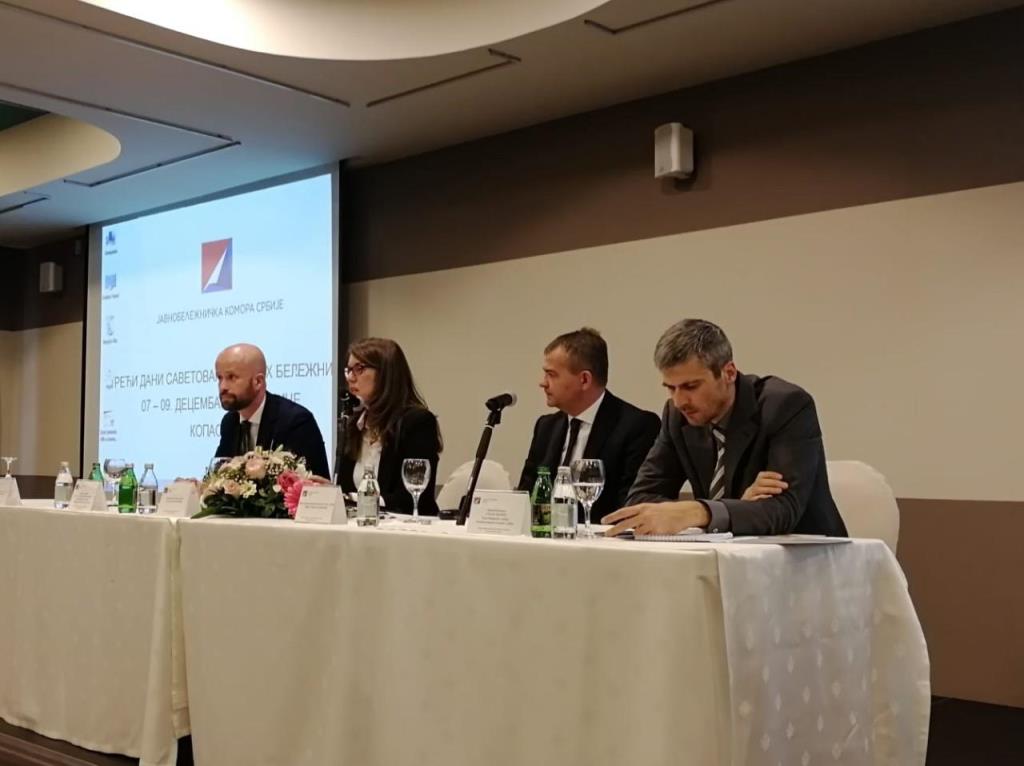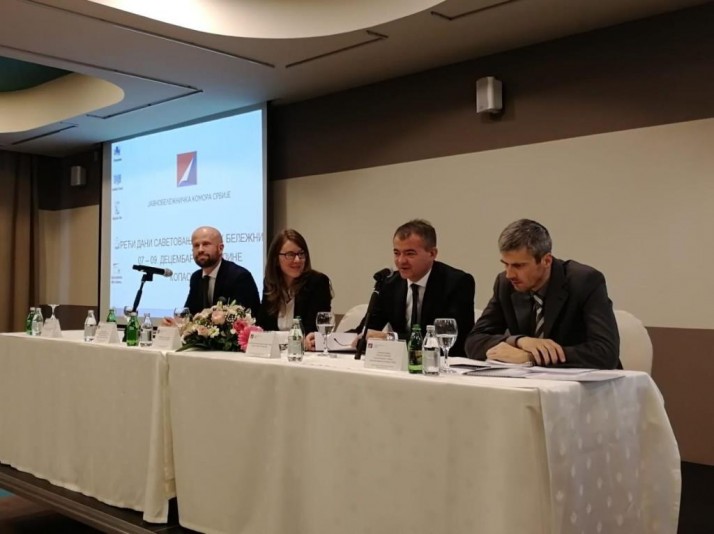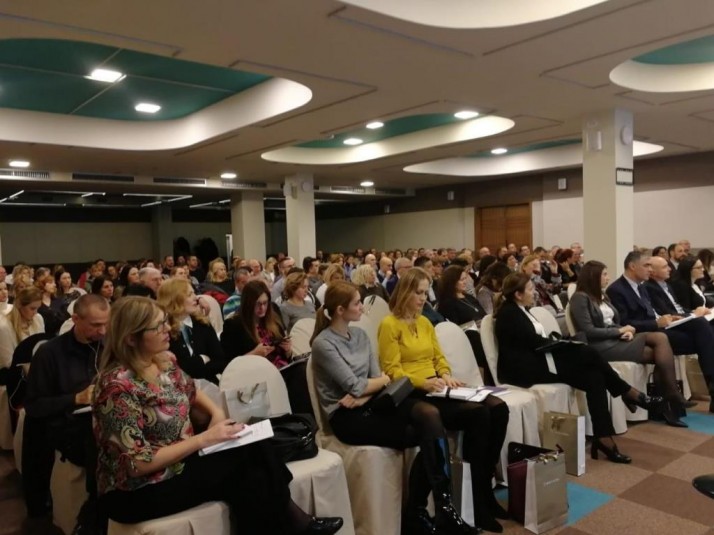The Third Public Notaries Council meeting was held on Mount Kopaonik, from 7th to 9th December 2018. The main topics of discussion were case file archiving, media relations and the new cadastre registration procedure.
Acting on behalf of the Ministry of Justice, Assistant Minister Jelena Deretić told the meeting participants that 2018 had been a year full of challenged for the notarial profession, challenges different to those which had been following it since it was introduced, yet equally demanding. ‘Those challenges are reflected in the clear and unequivocal application of the new statute which regulated the cadastre registration procedure‘, Deretić said. She added that certain provisions of the Cadastre Registration Procedure Act had introduced novelties in Serbia’s legal system and that all the relevant actors required time to familiarise themselves with the changes before they could start implementing them in a uniformed manner.
As for the new cadastre registration procedure, the Assistant Minister explained that new ICT solutions had also been introduced which required further engagement of the Ministry of Justice and the Notaries Chamber, i.e. the actual notaries as direct users of those IT solutions. ‘The technical matters of implementing the Act show that the notarial profession is an inevitable part of further digitalisation, especially given the trend in ICT use in the justice sector’, Deretić argued. She explained that the introduction of the new Real-Estate Turnover application - which the Ministry of Justice had launched in early 2018 - and the latest amendments to the Signature, Transcript and Manuscript Verification Act supported this point.
Speaking of the Ministry’s plans for the following year, Deretić said that further digitalisation of certain segments of public notaries’ activities was planned. She also highlighted that the Ministry of Justice and the Notaries Chamber had had a very good cooperation with the High Council of French Notaries to the effect that a cooperation agreement in exchanging knowledge and experiences would soon be signed by, on the one hand, Serbia’s Ministry of Justice and the Notaries Chamber and, on the other hand, France’s High Council of French Notaries.
‘The Ministry of Justice has also formed a working group which will be analysing the entire legal framework regulating the notaries’ competencies. Its members include representatives of the Notaries Chamber’, Deretić added. She emphasised that the working group would be supported by the EU Justice Project which has one of its three components solely dedicated to the development of judicial professions.
Deretić concluded by saying that in the four years of existence, the public notaries had fully justified the trust shown to them, evident in the results of their performances which could eventually lead to more competencies - otherwise judicial in nature - being transferred to them.






